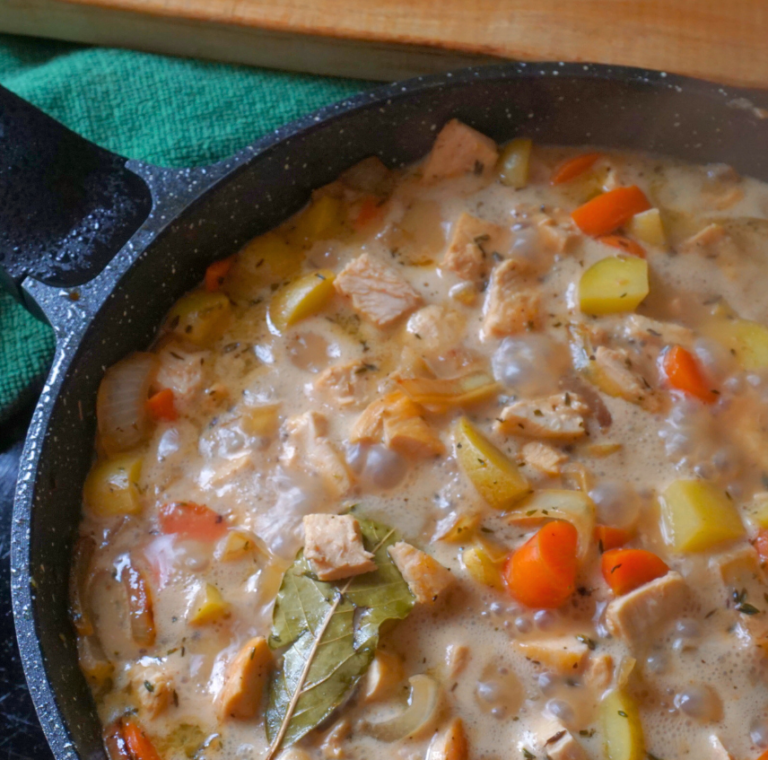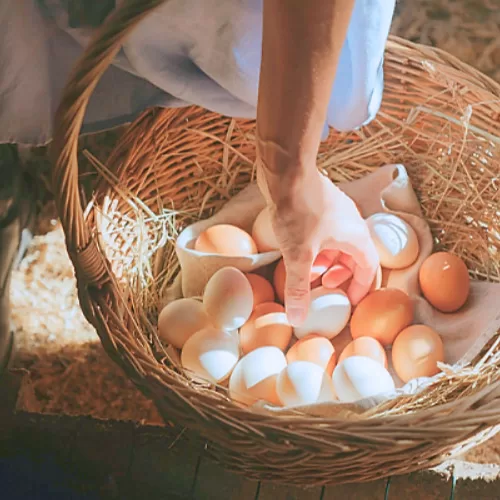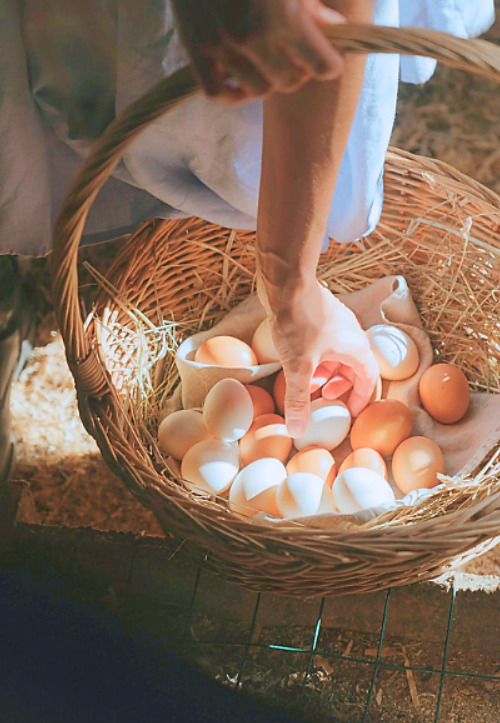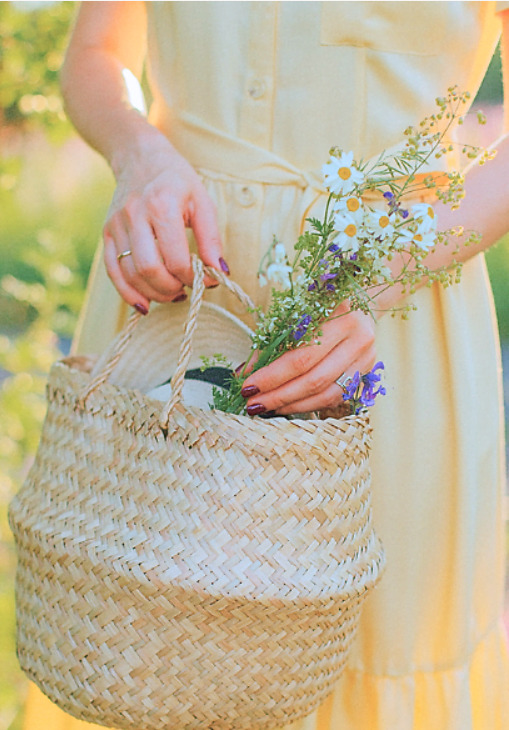Sharing is caring!
planting a vegetable garden for the first time? check out these tips for a successful harvest
Whether you live in a bustling city or a quiet countryside, achieving a successful vegetable garden a is an amazing goal. In today’s fast-paced world, finding a harmonious balance between urban living and the natural charm of growing plants is many’s ultimate goal.
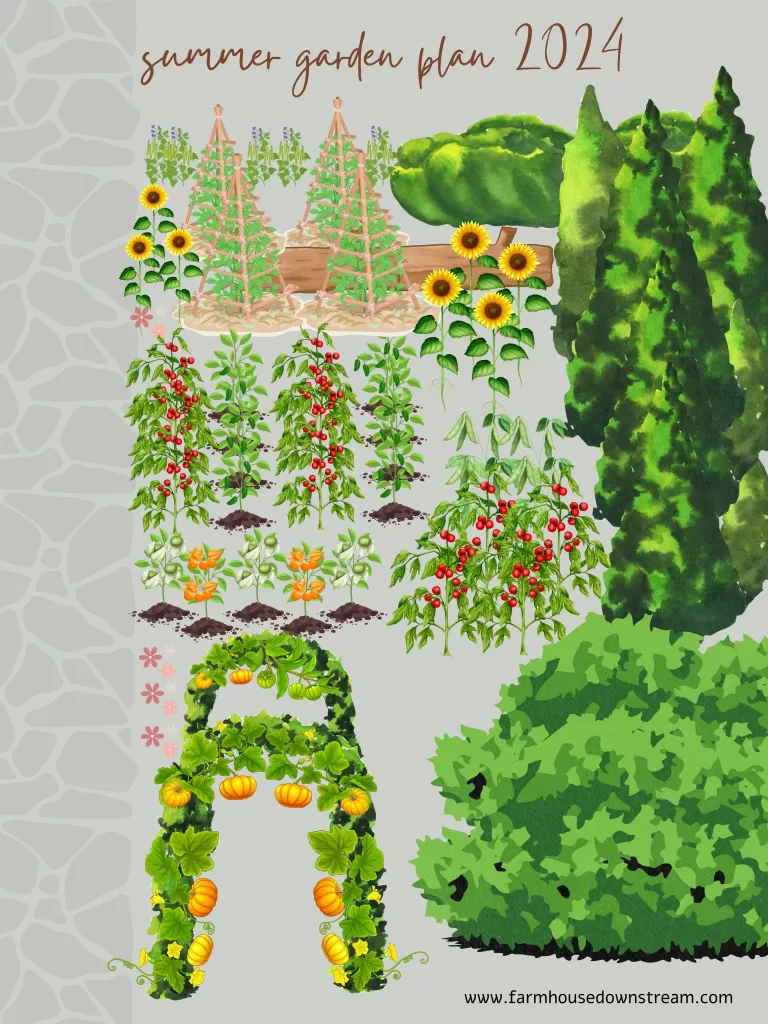

Welcome! I'm Einav
Greetings! I'm delighted that you discovered my little piece of online paradise. Join me as we relish in the comforts of our home centered lifestyle, living naturally, from-scratch cooking, and establishing a home that's a true reflection of who we are. Let's celebrate the everyday beauty of life together!
The course of a vegetable garden is very simple:
1. Plan your garden a few months ahead.
2.Plant your seeds inside until “mature” leaves have grown
3. continue by adapting your plants to the temperatures outdoors
4. planting your vegetable plants
5. watering and nurshing as needed
6. picking your fruit and vegetables
This article will guide you through the first step of your vegetable garden – The Planning.

what is a summer garden
A summer garden is a delightful space where vibrant plants thrive during the warm months. Whether you’re an experienced gardener or a beginner, here’s what you need to know about creating and tending to a summer garden
When to Start a Summer Garden
Aim to get your plants in the ground by mid-July. This timing allows your crops to mature before the intense heat of late summer arrives.
Vegetables That Thrive in the Summer:
Tomatoes, okra, corn, pole beans, and lima beans are excellent choices. These veggies can withstand high temperatures and continue producing fruit until autumn. Plant them by mid-July to avoid frost threats.
Keep in mind that these vegetables don’t handle cold temperatures well, so they’re perfect for the summer season.
So, roll up your sleeves, soak up the sun, and create your own slice of summer paradise!
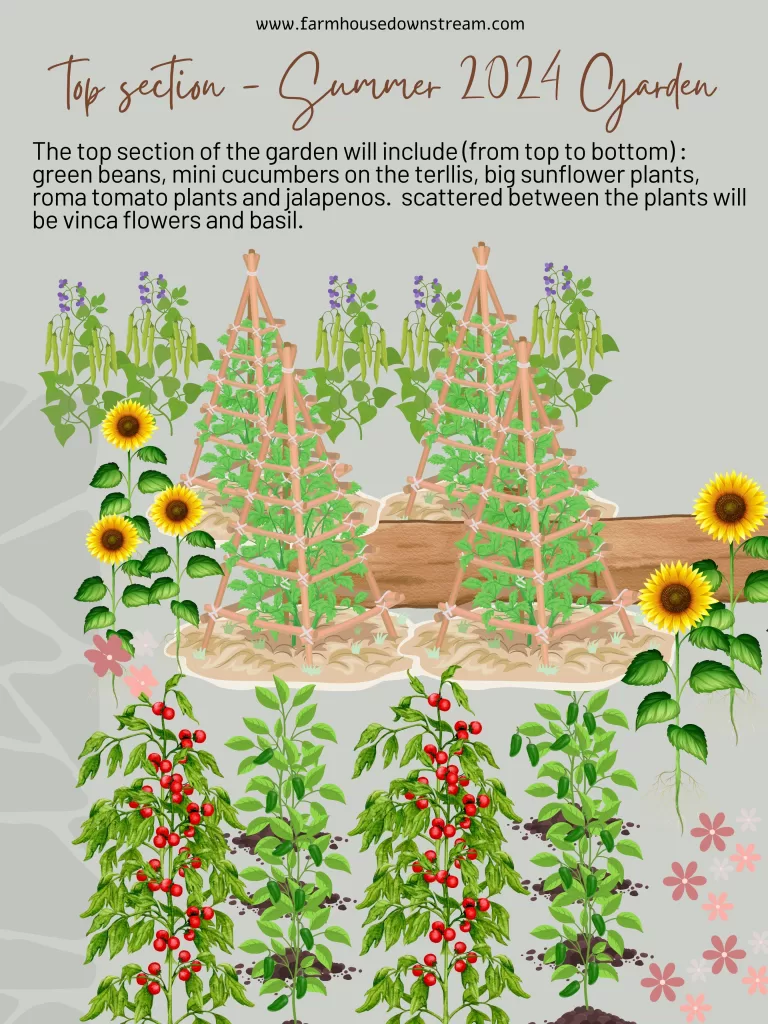
summer garden trends 2024
Prioritizing Pollinators
Creating a wildlife-friendly garden is a top trend in the summer garden 2024 trends.
Bees, butterflies, beetles, and birds are welcome guests so consider planting pollinator-friendly flowers like coneflowers, salvia, butterfly bush, cosmos, yarrow, sunflowers, poppies, and columbine.
Vibrant Plant Colors
In 2024, plant colors will be bold and zesty with a touch of moody mauve. Expect shades like Cyber Lime (a neon green) to make a splash and look out for darker, moody tones such as burgundy, mauve, and black that will also feature prominently in planting schemes.
Drought-Tolerant Plantings
as a result of our climate changes, water-wise gardening has become essential. try and Opt for drought-tolerant plants that thrive even in warmer conditions to maintain a beautiful garden this summer.
Wellness Gardens
Gardens designed for well-being are on the rise. try incorporating calming elements like meditation spaces, aromatic herbs, and sensory plants. Therefore create a sanctuary where you can unwind and recharge.
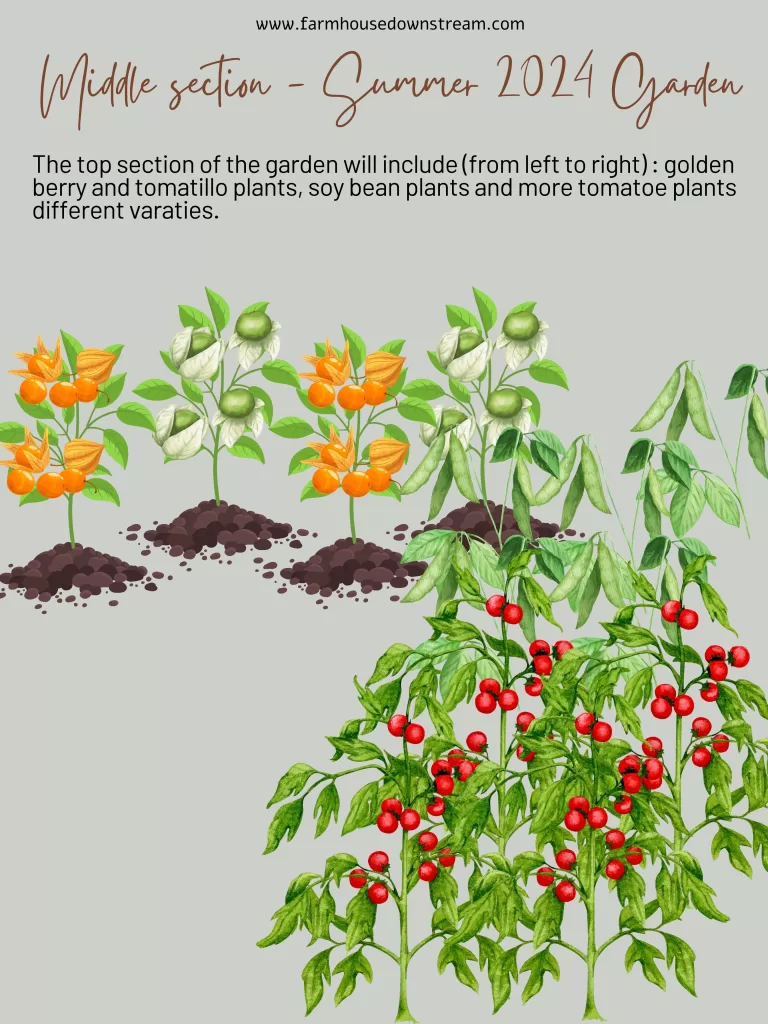
read more about implementing an urban farmhouse lifestyle is these posts:
Urban Farmhouse functional House Décor
Growing Your Own Food in a small garden space
Urban Farmhouse Décor – 2024 popular trend
7 Simple Ways To Refine Your Urban Farmhouse
Unveiling the Charm of an Urban Farmhouse: A Blog Journey
2024 Modern Homesteading – What You Are Missing Out
Urban Homesteading: A Guide to Thriving in an Urban Environment
From Apartment to Farmhouse: Ultimate Guide
small garden done right – 4 steps fun
EASY rooftop garden: master your Green Thumbs!
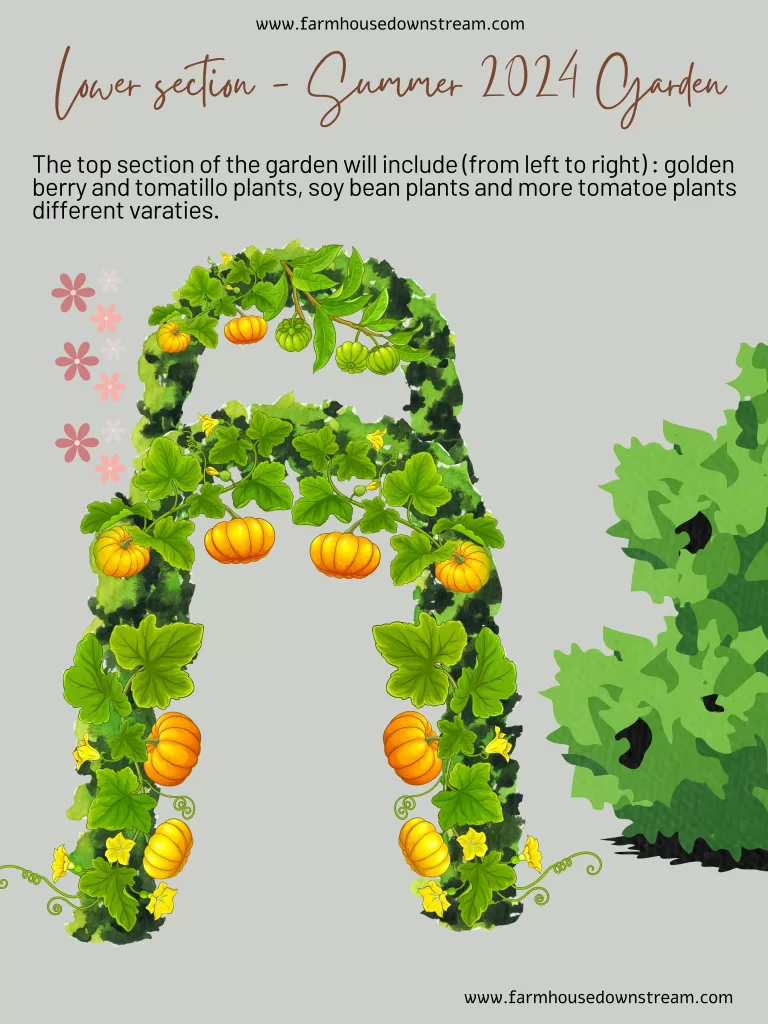
Additional Tips for a Successful Summer Garden
Planting seasonally is important to maintain a thriving garden.
Warm-season varieties include tomatoes, eggplants, peppers, cucumbers, and summer squash.
As temperatures cool, consider planting cool-loving vegetables such as broccoli, carrots, kohlrabi, lettuce, and spinach to enjoy continued harvests.
Regular tasks in the vegetable garden nclude planting flowers before it gets too hot, refreshing mulch to prevent weeds, and deadheading flowers to maintain vibrant colors.
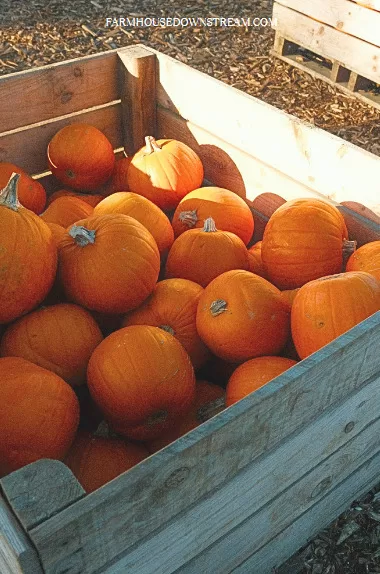
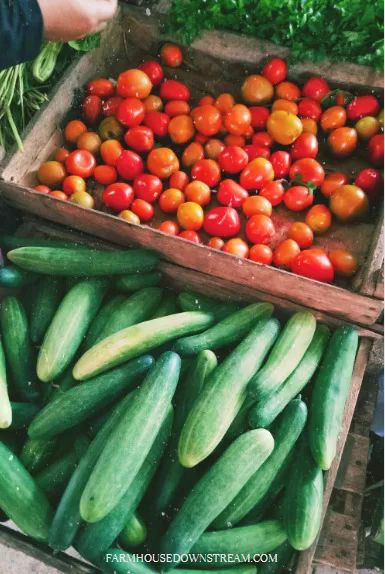
Benefits of the summer vegetable garden :
Improve Your Health:
Fresh vegetables are a central part of a healthy diet. Growing your veggies ensures access to nutrient-rich, organic produce. Gardening itself is a great physical activity that promotes well-being.
Save Money on Food:
Stocking up on fresh produce from your garden means having more food to enjoy for weeks or even months without spending money on store-bought vegetables.
Eco-Friendly:
Homegrown vegetables reduce the carbon footprint associated with transporting produce from distant locations. You can avoid plastic packaging and pesticides by growing your food.
Effective and Enjoyable Workout:
Gardening involves physical exertion, from digging and planting to weeding and harvesting. it’s a rewarding way to stay active and connect with nature.
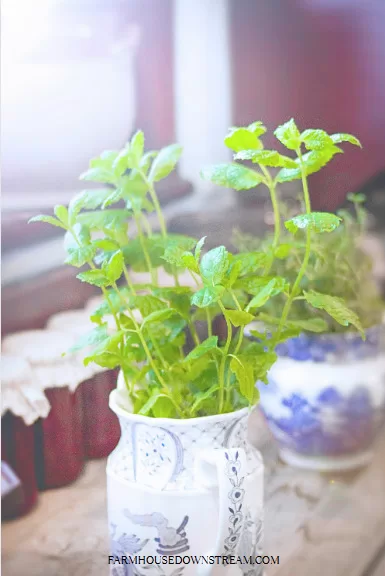
Remember these tips for successful summer vegetable gardening:
Water Consistently:
Slow and steady watering is crucial. Consider installing drip irrigation to maintain soil moisture and prevent crops from bolting too quickly.
Sow Fall Crops:
Plant short-season crops like arugula, lettuce, and beans for a fall harvest.
Thinning:
If growing large fruits like pumpkins, thin out the fruit to allow the vine to focus energy on one prize-winning specimen.
Apply Organic Fertilizer:
Use slow-release, granular organic fertilizers to give plants a gentle boost1.



